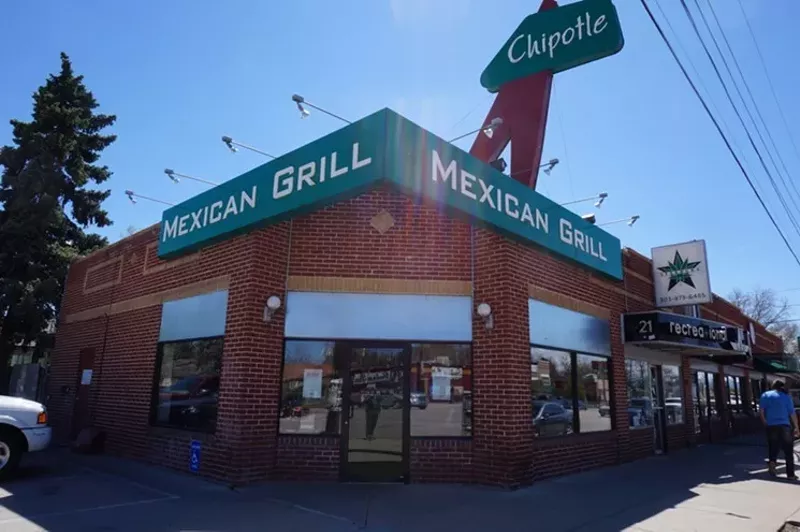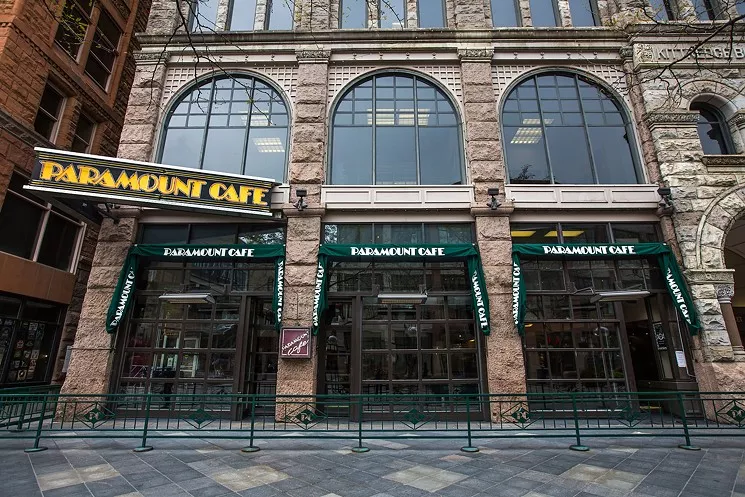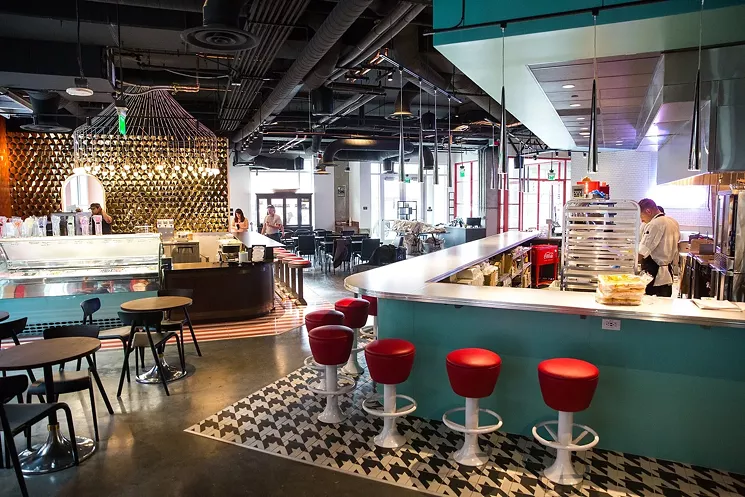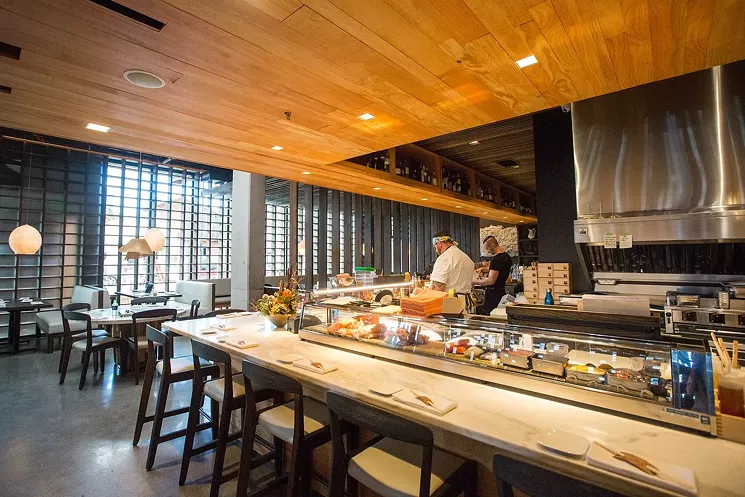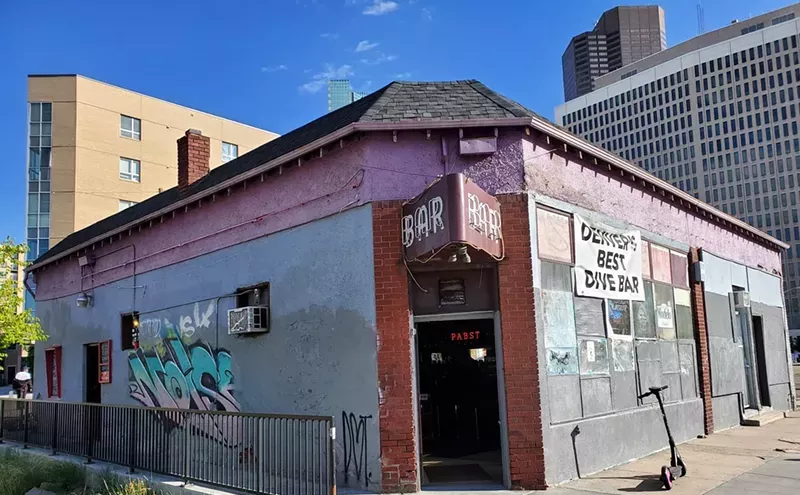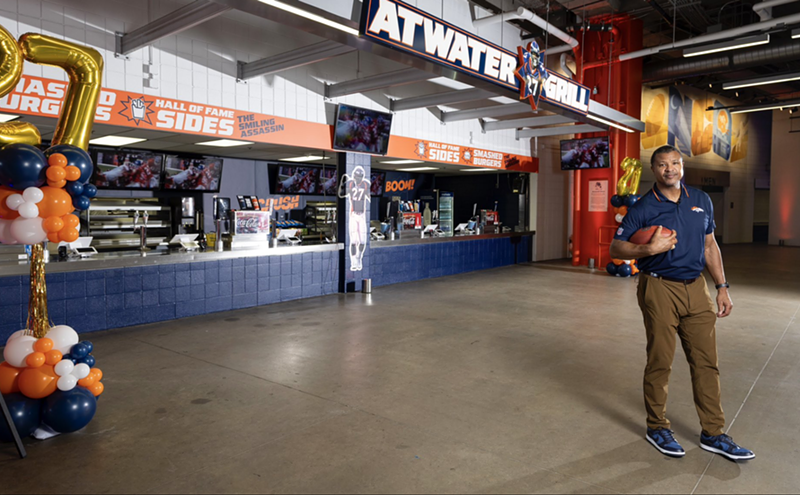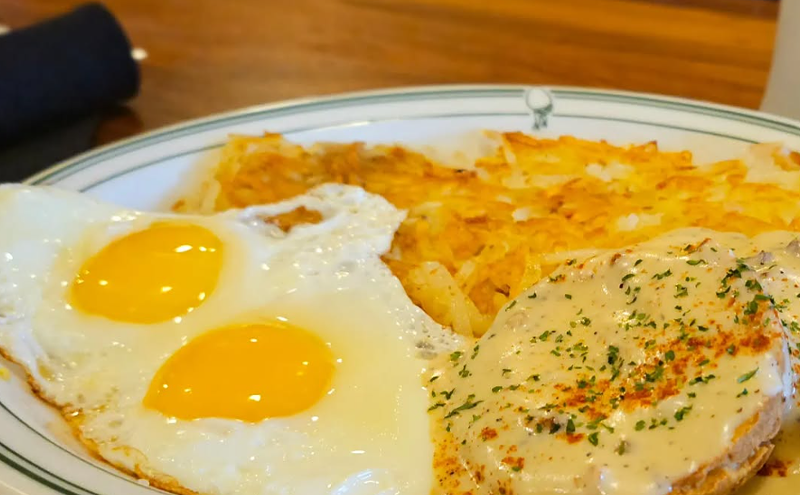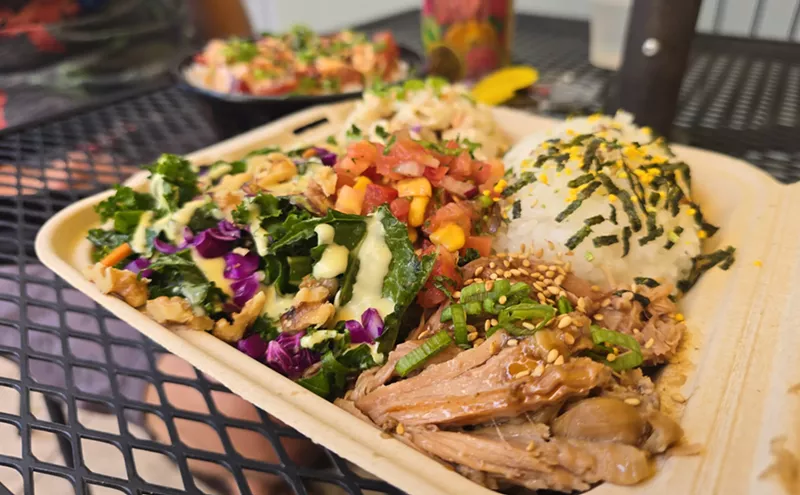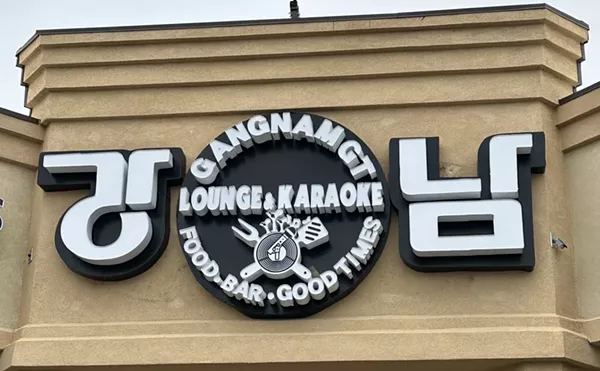Chipotle Leaves Denver
Chipotle was a neighborhood burrito joint that turned into a national phenomenon, marking Denver as the capital of the fast-casual movement that dominated the American restaurant scene through the 2000s. But over the past two years, the company has become less and less Denver, starting with the 2018 hiring of ex-Taco Bell head Brian Niccol as CEO, replacing founder Steve Ells (who stepped down in 2017). While Ells remains executive chairman, one of Niccol's first major moves was a literal move — taking the headquarters of this homegrown concept from Denver to Newport Beach, California. Now there's very little that ties Chipotle to this city; even the original location, at 1644 East Evans Avenue, serves mainly as a reminder of the publicly traded company's humble roots.
But it wasn't just Chipotle that un-Denvered itself; Smashburger, which got its start in Colorado in 2007, was just completely bought out by Jollibee, a Philippines-based restaurant giant that began taking over Smashburger back in 2015. While co-founder Tom Ryan will remain as CEO, Jollibee's Jose Minana is now president. Unlike Chipotle, though, Smashburger will maintain its corporate headquarters in Denver (for now). If you want to take a pilgrimage to the birthplace of the Smashburger, it's still smashing burgers at 1120 South Colorado Boulevard.
Denver Loses Some Restaurant Landmarks
Are there too many new restaurants in Denver? Increased competition and variety may be good for diners, but the plethora of choices also makes it tough for aging eateries to keep operating. Nostalgia and habit only go so far, even for some of our most revered establishments. This year we said goodbye to the Wazee Supper Club, the Old Spaghetti Factory and Govnr's Park Restaurant & Tavern, all of which had been landmarks on the dining scene for more than forty years. On Colfax Avenue, Mataam Fez (one of Denver's oldest Middle Eastern restaurants) and Solera (a neighborhood favorite for twenty years) both called it quits. Another old-timer and sister restaurant to Govnr's Park, the Paramount Cafe, closed, as did sibling Marlowe's. Perhaps the biggest blow to our childhood memories, though, is the imminent end of White Fence Farm, which will fry its last chicken before 2018 runs out.
Reasons for the closures include flagging sales, menus that no longer hold appeal for younger diners, and owners simply tired of the daily grind. While some of these eateries were definitely past their prime, all had a real role in the evolution of the city's restaurant scene.
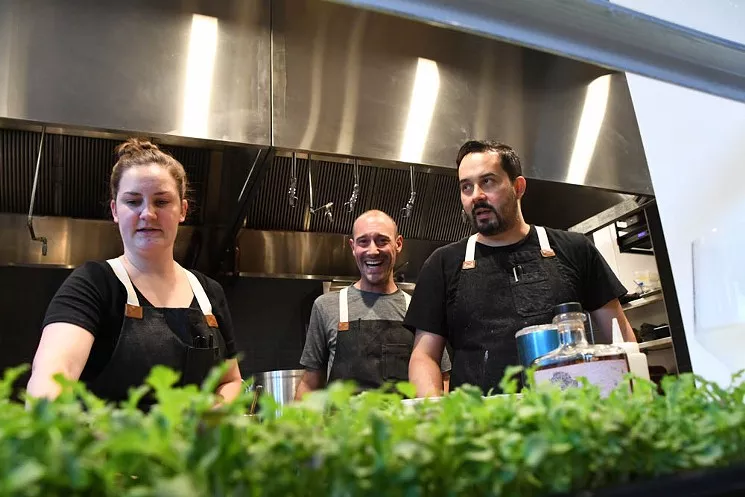
Restaurants like the Wolf's Tailor looked for creative solutions to food service labor issues.
Westword
Another side effect of the restaurant boom is that the talent pool has become very shallow. While some call this an employee shortage, it could also be seen as the result of a restaurant glut. And really, it all comes down to money: Restaurateurs simply can't pay enough to attract workers to fill all the openings while still maintaining prices that customers are willing to pay. So if you can't increase your manpower, how do you provide adequate service? Two years ago, Birdcall opened in Five Points with order kiosks where customers punch in their food orders, swipe a card and then watch a digital monitor that indicates when the food is ready. It's going well enough that the restaurant opened another location in the University of Denver neighborhood this year. And at the new DC Pie Co., digital tablets hidden in slots at each table hold menus that allow guests to order and pay without talking to a server, if they're so inclined.
So-called fine-casual eateries like the upcoming Brass Tacks and Leven Deli offer food that's best consumed in a sit-down setting, but customers order at the counter before grabbing a table and waiting for a server to deliver their meals. On the extreme end of this concept was Acreage, which opened with a fairly complicated menu and a long list of ciders that guests would order from at the counter before sitting down. While that model made it easier to run a dining room with fewer employees, Acreage eventually switched to a more standard full-service model, since many diners found the counter-service model too complex to navigate while standing in line.
Other restaurants, like the new Wolf's Tailor, pay front- and back-of-house employees the same rate, so that tips can legally be shared among cooks and servers, and all staffers are cross-trained to provide the best possible customer service. Overall, "hospitality" has become a big buzzword in the industry; restaurant-goers can assume that's really code for figuring out how to improvise with fewer employees.
Food Halls Take Over
One man, one space, sixteen different bars and restaurants. Frank Bonanno, one of Denver's most successful and prolific chefs, exploded on the food-hall scene in June by delivering the most diverse example in the city — and doing it all himself. Whether you're craving bao buns, poke, pizza, pasta, fried chicken, fresh fish or a big salad, Denver Milk Market is all but guaranteed to satisfy.
Some folks prefer the more pragmatic term "food court," while others lean toward the catchier "market hall." Whatever you call them, these conglomerations of fast-casual counters, often supplemented with prepared foods, fresh groceries and various other sundries, are changing the way we shop and eat. Zeppelin Station made another big splash, adding two bars and eight food counters to a desolate RiNo block that will soon explode as development pushes north and light-rail commuters spill in. And coming soon: Broadway Market, Edgewater Public Market and Tributary and Golden Mill, both opening in Golden.
Restaurateurs Go Big
While employees may be scarce, startup money is flowing freely in Denver, allowing some of the glitziest openings this city has seen in years. The trend has been on the uptick for the past couple of years, with sumptuous dining rooms such as Tavernetta, El Five, the Bindery and Concourse debuting in 2017, and restaurateurs continue to court big spenders this year with the likes of Safta, Corrida, Liberati, Morin and Uchi. Even the shoebox, seventeen-seat Beckon, which offers only chef's tasting menus, feels well-appointed and far from the DIY ethos that fueled the pine and handmade furniture craze of the first half of this decade. And we're all for it: Give us a comfortable designer chair over handmade furniture cobbled together from shipping pallets and upcycled hardware any day.

